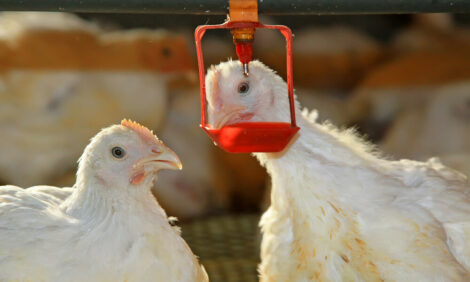



New Focus on Reducing Campylobacter Risks
UK - A new report from BBSRC, the Food Standards Agency (FSA) and Defra details research priorities aimed at reducing the risk of food poisoning from fresh poultry through better control of the food-borne pathogen Campylobacter.Campylobacter causes more illness than any other foodborne pathogen in the UK, across Europe and many other countries, often transmitted from raw meat.
In 2010, the three organisations published the UK Research and Innovation Strategy for Campylobacter (RISC) – a joint strategy for a research programme with clear priorities to support the development of effective interventions to reduce Campylobacter contamination of poultry. The complex ecology and biology of Campylobacter mean that the development of effective risk reduction strategies is a major challenge for Governments, livestock producers, processors and retailers.
In March 2013, a workshop reviewed the progress to date of research undertaken as part of this strategy and identified further work which may be required.
The workshop gathered together representatives of industry, researchers, funders and policy-makers and the report details future research opportunities, including:
- Research to support the development of a Campylobacter vaccine for chickens
- Understanding immunology and resistance in the animal host: investigation of the impact of genetics on Campylobacter colonisation and breed-specific susceptibility in chickens.
- Elucidating the behaviour of farmers to Campylobacter control and motivation for on-farm controls
- Consumer attitudes to Campylobacter and motivating behaviour change in domestic and catering kitchens
- The survival of Campylobacter in the food chain
- Ascertainment of Campylobacter infection in humans and the importance of different sources and transmission routes (retail, domestic/catering kitchens, environmental)
- Elucidating the behaviour of business owners and operational staff to Campylobacter control and motivation for improving practices and control in slaughterhouses and processing plants
- The seasonality of Campylobacter infection in chickens and humans and how this impacts on the effectiveness of intervention strategies
- The development of quantitative models for determining the impact of interventions applied throughout the food chain (individually and in series)
- Research to elucidate the human immune response to Campylobacter infection and investigation of seroprevalence to assess population exposure.
Based on the workshop's findings, opportunities for further research to address these priorities have been discussed by the Microbiological Safety of Food Funders Group, which comprises the Defra, FSA and BBSRC and others including the MRC, ESRC and Technology Strategy Board.
It is expected that this will result in new research calls, from single funders or through joint funding, during the first half of 2014.









